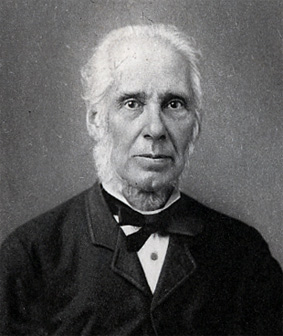William Kitchen Parker
William Kitchen Parker (1823–1890) was a prominent English zoologist and anatomist known for his extensive work on the morphology and taxonomy of vertebrates. His research significantly contributed to the understanding of the evolution and development of various animal groups, particularly birds and fishes.
Early Life and Education[edit | edit source]
William Kitchen Parker was born in Dogsthorpe, near Peterborough, in 1823. He developed an early interest in natural history and pursued studies in medicine and anatomy. Parker trained at St. Bartholomew's Hospital in London, where he honed his skills in dissection and microscopy.
Career[edit | edit source]
Parker's career was marked by his association with several prestigious institutions. He worked as a curator at the Hunterian Museum of the Royal College of Surgeons and later became a professor of zoology at King's College London. His meticulous research and publications earned him recognition in the scientific community.
Contributions to Science[edit | edit source]
Parker's contributions to zoology and anatomy were vast and varied. He is best known for his studies on the skull structure of vertebrates, particularly birds and fishes. His work on the developmental biology of the avian skull provided insights into the evolutionary relationships between different species.
Notable Works[edit | edit source]
Some of Parker's notable works include:
- "On the Structure and Development of the Skull in the Ostrich Tribe" (1866)
- "On the Structure and Development of the Skull in the Common Fowl" (1869)
- "On the Structure and Development of the Skull in the Salmon" (1873)
Legacy[edit | edit source]
William Kitchen Parker's research laid the groundwork for future studies in comparative anatomy and evolutionary biology. His detailed observations and descriptions of vertebrate morphology continue to be referenced by modern scientists. Parker was a Fellow of the Royal Society and received several awards for his contributions to science.
Personal Life[edit | edit source]
Parker was married and had several children. He passed away in 1890, leaving behind a legacy of scientific discovery and a wealth of knowledge in the field of zoology.
See Also[edit | edit source]
References[edit | edit source]
External Links[edit | edit source]
Search WikiMD
Ad.Tired of being Overweight? Try W8MD's NYC physician weight loss.
Semaglutide (Ozempic / Wegovy and Tirzepatide (Mounjaro / Zepbound) available. Call 718 946 5500.
Advertise on WikiMD
|
WikiMD's Wellness Encyclopedia |
| Let Food Be Thy Medicine Medicine Thy Food - Hippocrates |
Translate this page: - East Asian
中文,
日本,
한국어,
South Asian
हिन्दी,
தமிழ்,
తెలుగు,
Urdu,
ಕನ್ನಡ,
Southeast Asian
Indonesian,
Vietnamese,
Thai,
မြန်မာဘာသာ,
বাংলা
European
español,
Deutsch,
français,
Greek,
português do Brasil,
polski,
română,
русский,
Nederlands,
norsk,
svenska,
suomi,
Italian
Middle Eastern & African
عربى,
Turkish,
Persian,
Hebrew,
Afrikaans,
isiZulu,
Kiswahili,
Other
Bulgarian,
Hungarian,
Czech,
Swedish,
മലയാളം,
मराठी,
ਪੰਜਾਬੀ,
ગુજરાતી,
Portuguese,
Ukrainian
Medical Disclaimer: WikiMD is not a substitute for professional medical advice. The information on WikiMD is provided as an information resource only, may be incorrect, outdated or misleading, and is not to be used or relied on for any diagnostic or treatment purposes. Please consult your health care provider before making any healthcare decisions or for guidance about a specific medical condition. WikiMD expressly disclaims responsibility, and shall have no liability, for any damages, loss, injury, or liability whatsoever suffered as a result of your reliance on the information contained in this site. By visiting this site you agree to the foregoing terms and conditions, which may from time to time be changed or supplemented by WikiMD. If you do not agree to the foregoing terms and conditions, you should not enter or use this site. See full disclaimer.
Credits:Most images are courtesy of Wikimedia commons, and templates, categories Wikipedia, licensed under CC BY SA or similar.
Contributors: Prab R. Tumpati, MD

